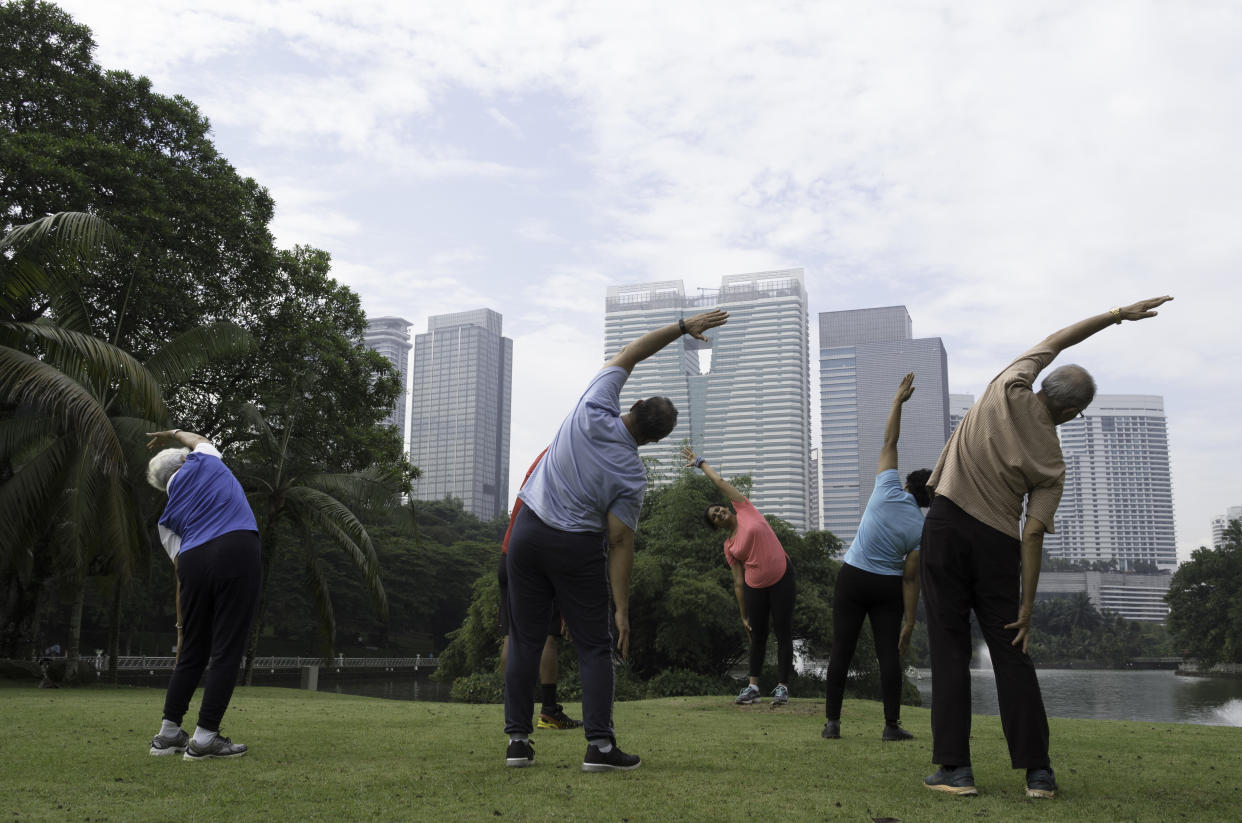Budget 2020: Silver lining for older Singaporeans

By Theresa Ellsworth
SINGAPORE — Almost lost amid headline-grabbing measures to deal with an economic slowdown due to COVID-19, cash handouts for all, and the deferment of a planned Goods and Services Tax (GST) hike, were the Singapore Budget’s moves to tackle an area of continuing concern for the country: retirement adequacy.
Singapore’s population is ageing rapidly, and with growing life expectancy, having enough money for retirement is a key concern for both the government and citizens.
Budget 2020, announced on Feb 18 by Deputy Prime Minister and Finance Minister Heng Swee Keat, built on measures already in place in two key areas: keeping Singaporeans employable for longer, and helping those in the lower-income group save more.
A key plank, reinforced for several years now, has been continual learning and reskilling to remain employable or be able to move on to new roles. This year, Mr Heng announced a one-off, $500 grant in the SkillsFuture Credit Scheme, a government programme to encourage “lifelong learning” by providing cash to be used for various courses. The scheme kicked off in 2016 with an initial $500 government grant.
For Singapore’s almost one million mid-career and older workers who are more likely to be affected by the country’s continuing economic transformation, there was an additional $500 aimed at “doubling the annual job placement of locals in their 40s and 50s to around 5,500 by the year 2025”. These additional credits will expire in five years, unlike the initial grant, which does not expire.
Observers applauded the five-year shelf-life for the new SkillsFuture Credit top-up. “This drives urgency for retraining and reskilling,” said Mr Alan Lau, Head of Financial Services Tax at KPMG in Singapore. “Singaporeans should take advantage of this, given the current economic conditions, to ready themselves for the future upturn”.
Others said the grants would help keep skills current. “The need for continuous, lifelong learning cannot be over-emphasised in this era of disruption,” said Mr Toh Boon Ngee, a partner at KPMG. “In order for Singapore enterprises to undergo large-scale transformation, it must be underpinned by a pool of workers equipped with the right skillsets.”
Affordable wages
Another prong of Singapore’s effort to keep older workers employable has been to keep their wages affordable. In his Budget, DPM Heng introduced a Senior Worker Support Package, including a wage offset for employers of workers aged 55 and above and earning up to $4,000 a month, and another offset to cover half of the increase in Central Provident Fund (CPF) contribution rates.
These measures come on the back of a staggered increase in the official retirement age, from 62 to 63 by 2022, and 65 by 2030, announced last year. CPF contributions, which currently drop once workers turn 55, will also be gradually raised for older workers as part of moves to ensure retirement adequacy.
Employers welcomed the measures. “As the retirement and re-employment ages are raised gradually over the decade, the Senior Worker Support Package…will help cushion the impact of employers’ wage costs and increased contributions to the CPF for older workers,” the Singapore Business Federation said in a statement.
The Budget also contained measures to help those in the lower- and middle-income group who have not been able to put aside enough for retirement, including an enhanced scheme to top up their incomes, and a move by the government to match personal contributions to CPF.
There will also be a 20 per cent increase in the quarterly cash payouts for the elderly under the Silver Support Scheme, and more seniors will now be eligible. The scheme caters to seniors who had low income while working and currently have little or no family support.
“It’s a generous expansion that will go a long way to providing a better income security floor to seniors, allowing the scheme to have even more of an impact,” said Nominated MP Walter Theseira, who is also an associate professor of economics at the Singapore University of Social Sciences.
He noted that based on the Key Household Income Trends for 2019, released today, the number of households comprising solely of non-working people over 65 doubled from 4 per cent in 2009 to 7.9 per cent last year.
“Income security will continue to be an important issue… and this makes it easier for older Singaporeans to avoid falling into old-age poverty,” he said.
Stay in the know on-the-go: Join Yahoo Singapore's Telegram channel at http://t.me/YahooSingapore
Related stories:
Tourism sector: Will COVID-19 impact outlast Budget relief measures?
Singapore Budget 2020: More winners than losers
Budget 2020: Singapore expects overall budget deficit of $10.9 billion
Singapore pops a potent anti-viral. Is it enough?: Andy Mukherjee



